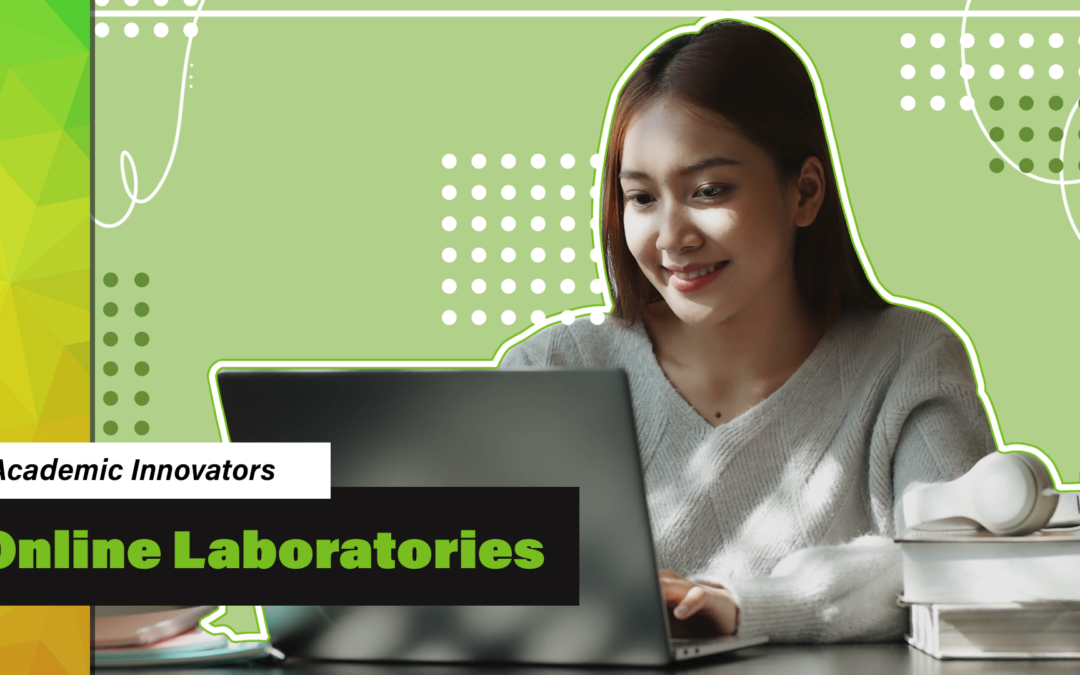E-Labs Unleashed: Reshaping Mechanical Engineering Education at ASU through the Implementation of Virtual Labs
Introduction

The paradigm shift towards online education has presented distinct challenges for hands-on courses, particularly in fields like Mechanical Engineering. One such course, MEE 491, ‘Experimental Mechanical Engineering’, traditionally relied on physical labs for students to explore fluid flow, heat transfer, thermodynamics, refrigeration, and mechanical power systems. To ensure that students in the online program could still derive substantive practical experiences, faculty members Ryan Milcarek and Josh Wilbur devised novel and forward-thinking virtual laboratories and simulations that not only maintained the foundational learning objectives, but also enhanced students’ ability to navigate uncertainties in data acquisition and analytical processes.
Enabling Learning in a Virtual Environment

Recognizing the importance of preserving fundamental components of the course, Milcarek and Wilbur set out to develop virtual labs that emulated the same learning objectives, including equipment manipulation, data collection, and experimental uncertainty analysis. Shipping elaborate lab setups to each student was quickly ruled out as infeasible, so the team instead turned to simulations. A Graphical User Interface (GUI) was developed for each virtual lab, allowing students to interact with virtual versions of the relevant components in each system, closely mirroring their engagement within a tangible laboratory setting. Using the interface, students are enabled to observe temperature and pressure readings at various locations as their inputs are manipulated. However, students don’t merely get a canned (pre-defined) response from the interface, but temperature and pressure readings that fluctuate due to experimental uncertainty built into the simulation. This uncertainty allows students to complete key learning objectives which include quantification of precision and bias uncertainty analysis. Moreover, students received kits containing small devices and electrical components with sensors mirroring those in the physical lab, enabling them to collect and analyze real-world data.
Empowering Students, Ensuring Equitable Learning
 The impact of this pioneering methodology was both substantial and profound. In the conventional milieu of in-person laboratory learning experiences, small groups of students are jostled through the process, each attempting to collect the necessary data in a limited time frame. However, through the adoption of virtual simulations, a paradigm shift ensued, affording each student the autonomy to directly interface with the HVAC system and independently navigate the data acquisition process. The virtual labs developed by Milcarek and Wilbur mark a noteworthy milestone in the trajectory towards an inclusive and equitable pedagogical environment, ensuring that every student, regardless of location, receives an immersive and engaging educational experience.
The impact of this pioneering methodology was both substantial and profound. In the conventional milieu of in-person laboratory learning experiences, small groups of students are jostled through the process, each attempting to collect the necessary data in a limited time frame. However, through the adoption of virtual simulations, a paradigm shift ensued, affording each student the autonomy to directly interface with the HVAC system and independently navigate the data acquisition process. The virtual labs developed by Milcarek and Wilbur mark a noteworthy milestone in the trajectory towards an inclusive and equitable pedagogical environment, ensuring that every student, regardless of location, receives an immersive and engaging educational experience.
Voices from the Student Community
Xavier Lujan-Flores, an undergrad student involved in the development of the virtual labs, underscored the newfound freedom afforded by breaking free of the physical laboratory, emphasizing, “It really gives a sense of autonomy over the labs for each individual… you get the opportunity to kind of mess with it yourself and try different things with it.” This sentiment also resonated with Trevor Johnson, who noted, “It’s cool that we’re at the point where we can use computer software to model the real world in a way that students can interact with, almost as if they’re in person.” These testimonials not only validate, but also underscore, the transformative impact of this initiative on student engagement and learning outcomes.
Conclusion
The successful transition of MEE 491 to an online format serves as a tangible demonstration of Milcarek and Wilbur’s resourcefulness and dedication to delivering education of the highest quality, even while deploying across multiple modalities. Through virtual labs and simulations, students not only retained the foundational learning experiences, but also gained new opportunities to explore uncertainties in data and analysis. This pioneering stratagem sets a precedent for the evolving landscape of higher education, emphasizing the importance of flexible instructional methodologies to meet the needs of a diverse and global student body.
This article and video are part of a faculty spotlight series, Academic Innovators, that provides recognition and insight for the inspirational work and research being done in the FSE community. Please consider nominating a faculty member to be featured.
